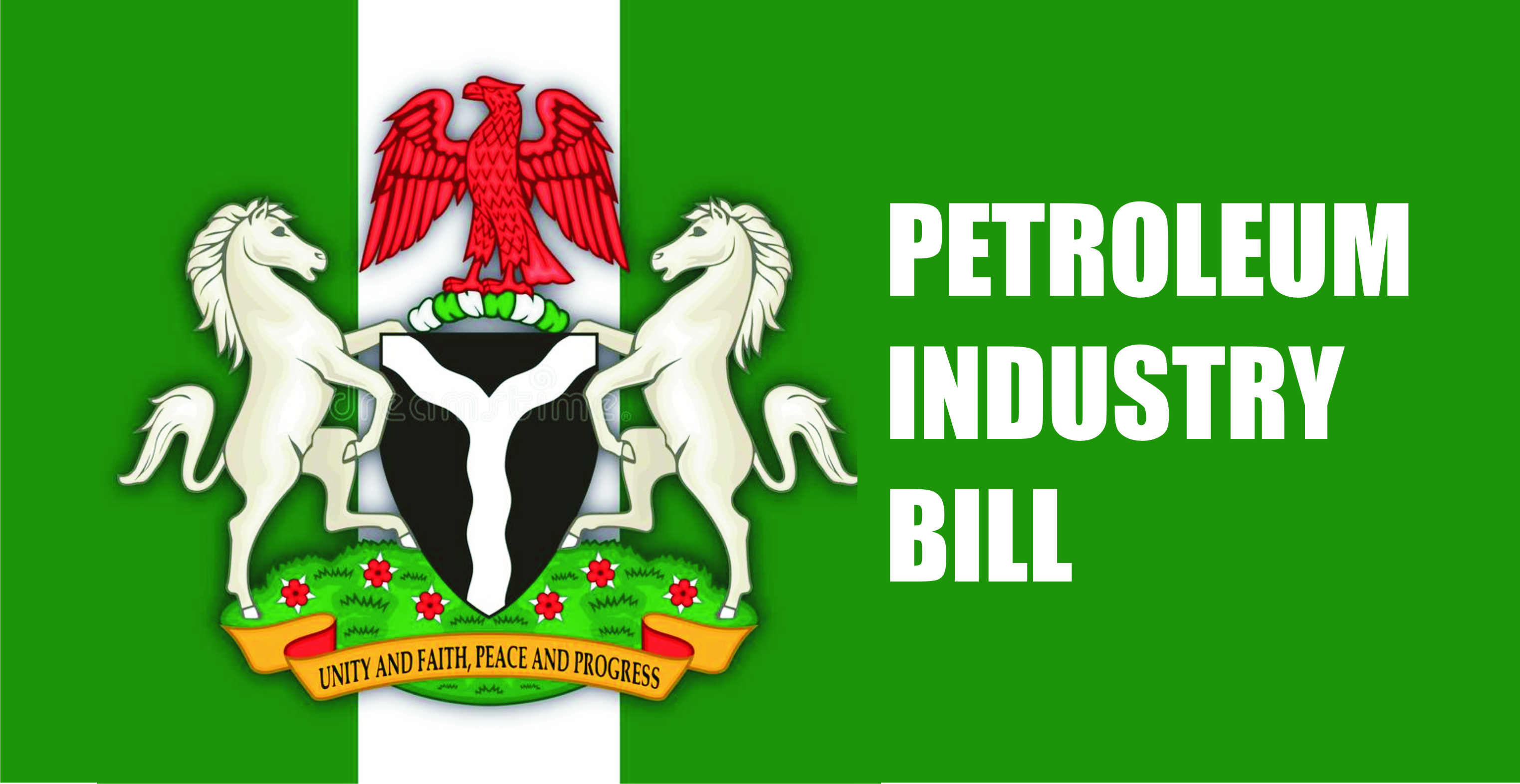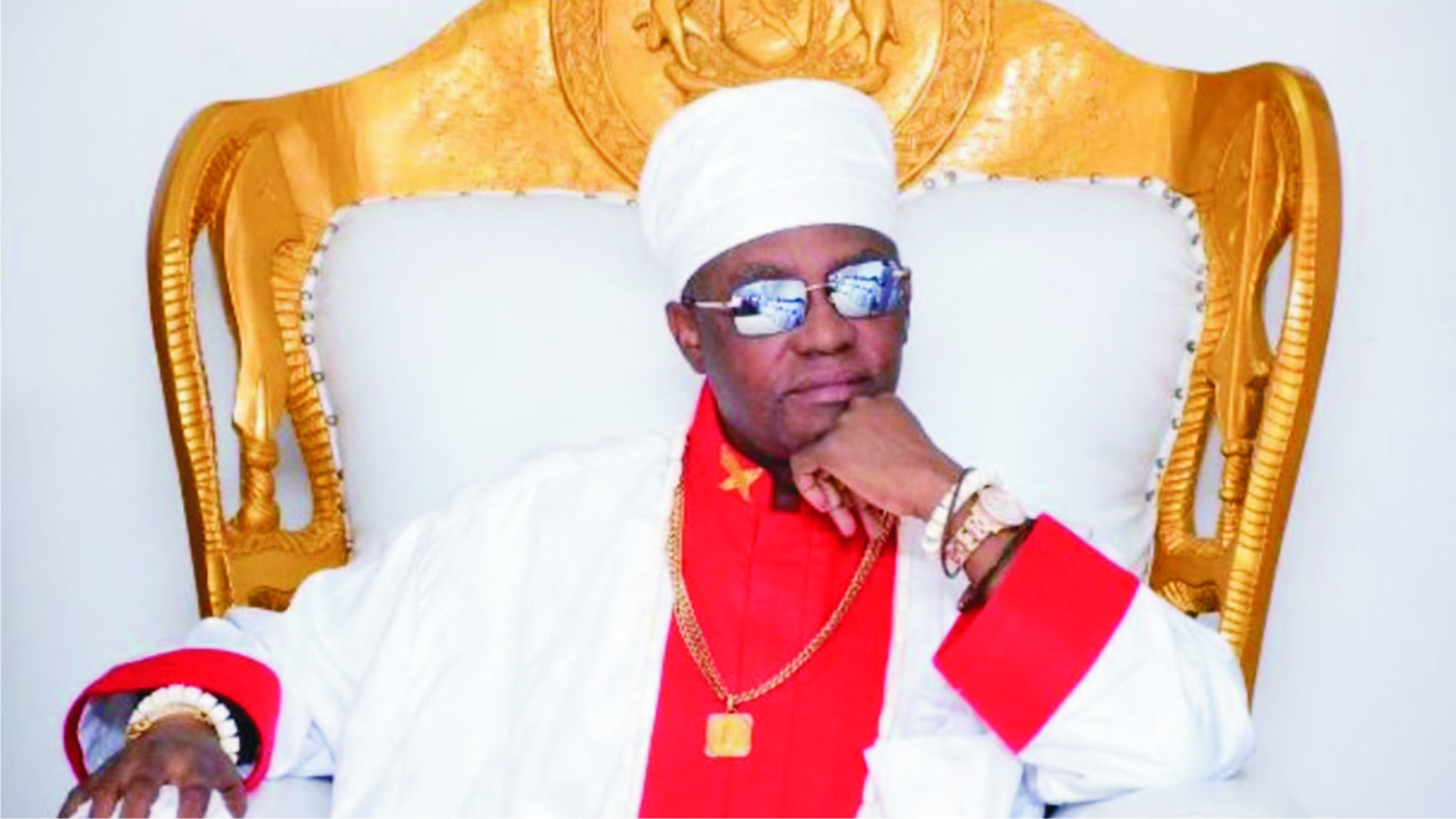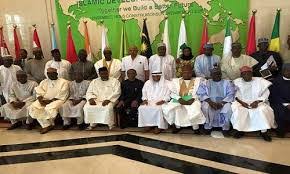News
PIB: FG Moves To Add Strategic Reserves’ Financing Cost To Fuel Price

The Federal Government is proposing the addition of the costs of managing the national strategic stocks of petroleum products to the retail price of the commodities.
The proposal, which is included in the 2020 Petroleum Industry Bill (PIB), currently before the National Assembly, might lead to a hike in the pump price of Premium Motor Spirit (PMS), also known as petrol, as well as kerosene and diesel, going forward.
This means that on the passage and signing into law of the PIB, the price of petrol might rise, other things being equal, as the cost of managing the national strategic fuel stocks would, from then, form an integral component of the pricing template of petroleum products pricing and would determine the pump price of the commodities.
Current components of the pricing template, apart from the landing cost, was the National Transportation Average, NTA; NPA charges, marketers margin and transportation costs.
The Federal Government had, few years back, proposed the inclusion of a certain amount of money as road maintenance charges and fuel tax in the retail price of petrol, but had to suspend the plan, because of resistance from Nigerians.
The Nigerian Midstream and Downstream Petroleum Regulatory Authority, which is the body that would emerge from the scrapping of the Petroleum Products Pricing Regulatory Agency (PPPRA), and the Petroleum Equalisation Fund (PEF), is to be saddled with the responsibility of setting up and managing the national strategic stocks of petroleum products.
The PIB is proposing that that the Nigerian Midstream and Downstream Petroleum Regulatory Authority would determine the amount to be charged as levy for financing the strategic petroleum products’ reserves, which would form part of the retail price of each of the petroleum products.
It is also mandating the Nigerian Midstream and Downstream Petroleum Regulatory Authority to work with security agencies in deciding areas of the country where the national strategic stocks would be maintained and distributed.
The PIB stated that: “The Authority shall: establish, administer and ensure the storage and distribution of the national strategic stocks of petroleum products in accordance with regulations issued by the Authority;
“Determine and publish the amount to be charged as a levy for the financing of the national strategic stock, which shall form part of the retail price of each petroleum product, such levy to be determined as a percentage of the retail price and be deducted on wholesale basis.
“Designate, in consultation with the appropriate authorities and national security agencies, the strategic locations across the country where the national strategic stocks shall be distributed and maintained.”
The PIB is also proposing that facilities and infrastructure which are to be specifically defined by the soon-to-be-established Nigerian Midstream and Downstream Petroleum Regulatory Authority for the storage of national strategic stocks would be exempted from the provisions of the law relating to open access.
In addition to managing the national strategic stocks of petroleum products, the PIB is saddling the Nigerian Midstream and Downstream Petroleum Regulatory Authority with other functions, including regulating and monitoring technical and commercial midstream and downstream petroleum operations in Nigeria.
The authority is also to regulate commercial midstream and downstream petroleum operations, including: petroleum liquids operations, domestic natural gas operations, and export natural gas operations.
It is also to determine appropriate tariff methodology for processing of natural gas, transportation and transmission of natural gas, transportation of crude oil, and bulk storage of crude oil and natural gas.
The Nigerian Midstream and Downstream Petroleum Regulatory Authority would set cost benchmarks for midstream and downstream petroleum operations; provide pricing and tariff frameworks for natural gas in midstream and downstream gas operations and petroleum products based on the fair market value of the applicable petroleum products.
It would also be its duties to advise the government, government agencies and other stakeholders on commercial matters relating to tariff and pricing frameworks; and develop open access rules applicable to petroleum liquids and natural gas transportation pipelines, terminal facilities and bulk storage facilities.
News
RSG Moves To Diversify Rivers Economy …As Farmers, Others Laud Ibas Over Implementation Of RAAMP

The Rivers State Government has restated its readiness to diversify the economy of the state from oil to Agriculture.
This is as farmers and other stakeholders have commended the Sole Administrator of Rivers State, Vice Admiral Ibok-Ete Ibas (Retd) for approving the implementation of Rural Access and Agricultural Marketing project (RAAMP) in the state.
Permanent Secretary, Rivers State Ministry of Agriculture, Mr Maurice Ogolo, said this during a meeting on implementation of RAAMP in Ikwerre, Eleme and Ogba Egbema Ndoni Local Government Areas.
Ogolo said the programme would create an agricultural industrial hub in the 23 local government areas, and urged the people to embrace the project.
Meanwhile, rural farmers and other stakeholders in the State have lauded Ibas for approving the implementation of RAAMP in the State.
RAAMP is a world bank program with support from the International Development Association ( IDA), the French Development Agency and the Federal Government of Nigeria.
According to a statement made available to newsmen, the programme aims to strengthen the institutional and financial base for sustainable management of state and rural networks, fostering historic development to enhance food security, creating access in rural communities to boost agricultural processes through creation of durable access roads and agro logistics centres/hub.
Tide source confirms that the program has been in operation since 2020 with 19 states benefitting.
The benefitting states are Kano, Katsina, Sokoto, Kebbi and Bauchi.
Other beneficiaries are Plateau, Kwarra, Ondo, Niger, Gombe, Anambra, Cross River, Taraba and Benue states.
The source said that 12 new states including Rivers State recently completed their requirements for inclusion into the RAAMP 3.
Speaking at the stakeholders’ meeting at Isiokpo, Nchia and Omoku, headquarters of Ikwerre, Eleme and Ogba/Egbema/Ndoni local government areas respectively, a cross section of farmers described the programme as timely as it would boost food production as well as create markets for agricultural produce.
At Eleme, HRH Emere J D Nkpe warned against politicising the project.
The people also complained against incessant destruction of crops by herdsmen and called for it to be checked.
Also speaking at Omoku headquarters of Ogba Egbema Ndoni Local Government Area,Eze Allison Dan and Barrister Lola Nwaribe commendation the government for the program but warned against it going the way of other programmes.
For Barrister Nwaribe Women in the area needs assistance to break free from subsistence agriculture
Speaking at the three ocal government areas Ogolo said Rear Admiral Ibok Ete Ibas rtd needs to be commended for approving the implementation of the program in the state.
Ogolo said the program is aims at diversifying Rivers economy from oil to Agriculture.
He said the program will also enable farmers to move from subsistence farming to commercial agriculture, adding that access roads will not only be created to farms but markets will be built for farmers to sell their produce.
He listed other benefits to include creation of employment for the youths and helping small traders to boost sales.
Also speaking the state RAAMP Coordinator,Mr Joshua Kpakol said the “the essence of this project is to provide rural access roads and improve agricultural marketing systems across the 23 Local Government Areas of the state”
Kpakol said the project is divided into three components which are improvement of Rural Access and Trading Infrastructure, Sector Reform,Asset management and Agro logistics performance Enhancement and Institutional Development, Project Management and Risk Mitigation.
He urged farmers and traders to embrace the project as it would go along way in changing their fortunes.
At Ikwerre and Eleme local government areas respectively, the sole administrators of the two councils Hon Isaiah Christian and Dr Gloria Obo Dibiah said the councils will work towards the success of the program.
They commended President Bola Ahmed Tinubu and the Sole Administrator of Rivers state for ensuring that their respective councils benefits from the programme.
John Bibor
News
Defamation: Court Grants Natasha N50m Bail

The FCT High Court in Abuja, yesterday, granted the suspended Senator representing Kogi Central Senatorial District, Natasha Akpoti-Uduaghan, bail in the sum of N50 million and one surety who must be a person of reasonable integrity resident in F.C.T Abuja and owns a landed property within the Abuja Municipal Area Council.
The trial judge, Justice Chizoba Orji, made the declaration in a ruling after taking arguments for and against the bail application from the parties in the suit.
The Attorney General of the Federation, in a three-count criminal charge marked CR/297/25, accused Akpoti-Uduaghan, the sole defendant, of making defamatory statements against the Senate President, Godswill Akpabio, during a live television broadcast.
The charge, which lists Akpabio and the former Kogi State Governor, Yahaya Bello, as nominal complainants, alleged that Akpoti-Uduaghan claimed Bello had conspired with Akpabio to orchestrate her assassination outside Abuja, disguising it as a mob or local attack.
According to the Federal Government, these allegations were made during a live broadcast on Channels Television’s Politics Today on April 3, 2025.
The Federal Government claimed that Akpoti-Uduaghan knowingly or recklessly made these imputations, fully aware that they could harm the reputation of the individuals involved.
The charge alleged that she said, “Let’s ask the Senate President, why in the first instance did he withdraw my security, if not to make me vulnerable to attacks? He then emphasised that I should be killed, but I should be killed in Kogi. What is important to me is to stay alive, because dead men tell no tales. Who is going to get justice for me?”
The charge also cites her statements during the programme as saying, “That you, Senator Natasha Akpoti-Uduaghan, on or about the 3rd day of April 2025, during the same Politics Today programme on Channels Television in Abuja, Federal Capital Territory, made the following imputation concerning Yahaya Adoza Bello, former Governor of Kogi State.
“It was part of the meeting, the discussions that Akpabio had with Yahaya Bello that night, to eliminate me. When he met with him, he then emphasised that I should be killed, but I should be killed in Kogi. You knew or had reason to believe that such imputations would harm the reputation of Yahaya Adoza Bello, former Governor of Kogi State.”
The senator is also accused of making defamatory statements about Akpabio during a telephone conversation with Sandra C. Duru in Abuja on March 27, 2025.
The alleged statement is as follows, “That girl that was killed, what’s her name, umm…. Imoren Iniubong, her organs were actually used for the wife, because the wife was really ill… when they killed the girl, and her organs were used for the wife.”
The Federal Government contends that Senator Akpoti-Uduaghan knew or ought to have known that this claim would harm the reputation of Senator Godswill Akpabio.
Meanwhile, the Senate President, Bello, and four others have been listed as witnesses in the trial.
The arraignment of Akpoti-Uduaghan was initially scheduled for June 3, 2025. However, the strike action of the Judiciary Staff Union of Nigeria stalled the arraignment.
Meanwhile, a similar matter is also lodged before Justice Muhammed Umar, of the Federal High Court in Abuja.
While Senator Akpoti-Uduaghan was slated for arraignment before Justice Umar, she, however, did not appear for the arraignment since the prosecution had not been able to serve her as stated in court.
The prosecution, however, applied for a bench warrant to be issued on the suspended senator, which the court refused.
At the commencement of the hearing, the counsel to the Attorney General of the Federation, David Kaswe, told the Court that the matter is for arraignment of the defendant (Senator Akpoti-Uduaghan).
Natasha was docked, and the three-count read to her. She pleaded not guilty to all the charges.
Akpoti-Uduaghan’s legal team, led by Professor Roland Otaru (SAN), afterwards informed the Court that a bail application filed on May 27 has been submitted to the court.
Kaswe, however, informed the court that the Federal Government is opposing the bail application and called the attention of the judge to a counter-affidavit filed before the court to this effect.
He proceeded to ask the court to remand the Kogi Senator in prison as she poses a flight risk.
He said, “In view of the charge, we will be asking for a remand in a correctional facility.
The defence counsel, however, interjected, stating, “We already filed an application for bail. We are in a court of law for Justice. We have a motion on Notice dated May 27, 2025. You represent the Ministry of Justice, not the Ministry of Injustice.
“If your lordship graciously will, we urge your lordship to grant the bail application. This is a case where your lordship has the discretion to grant bail, and nobody can query it, not even the president can query it. Even on self-recognition because it is not a case of murder.”
Referencing the Administration of Criminal Justice Act, Otaru added that anybody who is charged with a criminal offence shall be presumed innocent until proven guilty. “And she pleaded not guilty. As she is standing there, she is innocent until proven otherwise,” he added.
Justice Chizoba Orji, after listening to both arguments, however, granted Natasha bail in the sum of N50 million, with one surety who must be a person of reasonable integrity resident in F.C.T Abuja and owns a landed property within the Abuja Municipal Area Council.
News
Benin Monarch Receives 119 Stolen Artefacts From Netherlands

Oba of Benin, Ewuare II, has received 119 stolen artefacts from the Netherlands.
The Oba who disclosed this on Wednesday in Benin, the Edo State capital, said plans by some international cartel to re-loot the artefacts were thwarted after he prayed to God and the ancestors.
He said, “I thank President Bola Tinubu for supporting and committing to the efforts former President Buhari put in place to ensure the artifacts are not re-looted because there were groups in this country believed to be an international cartel that had all sorts of conspiracy to re-loot our artifacts.
“They stole and burnt our Kingdom. They killed my people and tried to kill their spirit and their morale. Today, the boldness, courage, and bravery of the Benin people are still there. Events of 1897 reduced that to a significant level that Sometimes when I see my people, they are afraid of the unknown.
“The return of these objects has reawakened the courage we had in our people. We do not want modern-day politics and partisan politics to diminish the courage of our people.
“The Director General of the National Commission for Museums and Monuments has been doing wonderful work. His predecessor was part of the conspiracy to re-loot our artefacts. We had a running battle in this hall.
“I addressed my Chiefs in Benin language, and I said these artefacts belong to my ancestors, and I will not sit on the ancient throne and watch the artefacts re-looted. They would rather remain where they are than be re-looted. I thank the government of the Netherlands for working with us. This is part of the efforts to reawaken the morale and spirit of my people.
“After 1897, the kingdom was reduced. There was a government in this state that wanted to reduce the kingdom more and scatter it. I am angry when I speak about it. Why would anybody want to scatter the kingdom.
“The youths were courageous like the youths of those days. They were not afraid of anybody. I vowed that it would not happen. Not in my reign. Not while I am sitting on this throne. God heard my prayers. My ancestors heard my prayers. This throne is not partisan, but I should support what is good for my people.
“I urge the youths to be tough and strong in the face of adversity. This is not for anybody else. It is for my ancestors.”
The Benin Monarch further prayed for the return of more artefacts.
The NCMM DG, Olugbile Holloway, said the commission and the Benin Royal Palace were working hard to ensure more artefacts were returned.
Edo State Governor, Monday Okpebholo, who was represented by the Secretary to State Government, Barr. Musa Ikhilor said his administration would continue to build necessary infrastructure to preserve the returned artefacts as well as collaborate with the Federal Government to improve the storage system for the artefacts.
The General Director of the Wereld Museum, Marieke Van Bommel, said, “The artefacts are looted, and we have a policy in the Netherlands to bring them back. We are bringing back 119 artefacts. We don’t have more. These are the collections in the Netherlands. There are more collections in Europe, but that is not up to us. They have been with us for over 100 years.”
-
News5 days ago
I Have No Regrets Over My Life Paths, CharlyBoy Says At 75
-

 News5 days ago
News5 days agoFG’ll Unlock Potential Of All States, Says Tinubu
-
Sports5 days ago
Shaibu Set To Overhaul NIS
-
Business5 days ago
PINL Awards Scholarships To 645 Persons … Presents Empowerment Packages For Host Communities.
-
Opinion5 days ago
L’Ouverture:Africa and Echoes of Toussaint
-

 News5 days ago
News5 days agoNEF Decries Benue Killings As Genocide, Calls For Probe
-
News5 days ago
FCCPC Seals France, Belgium, Italy Visa Centre Over Investigation Obstruction, Suspected Unfair Practices
-

 Rivers5 days ago
Rivers5 days agoRivers High Court Judges Begins 2025 Vacation July 21

